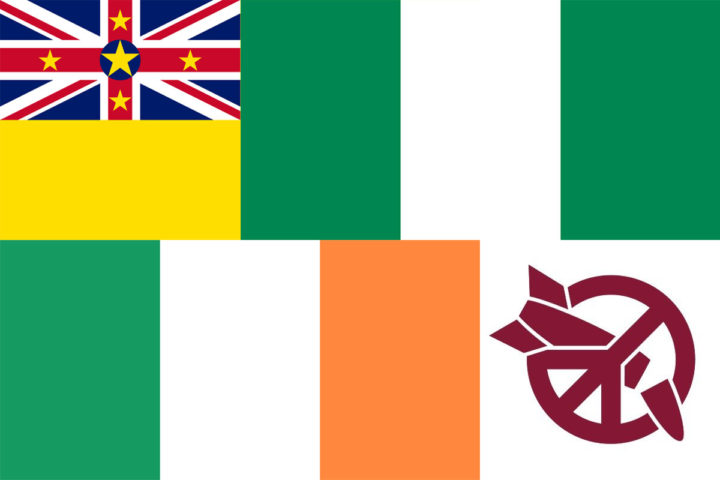In a ceremony hosted by ICAN and chaired by Elayne Whyte Gomez, the Costa Rican diplomat who steered the negotiations of the ground-breaking Treaty on the Prohibition of Nuclear Weapons, three more countries announced their ratification: Ireland, Nigeria and the pacific island state of Niue.
In her opening remarks, Whyte Gomez, paid tribute to the memories of the victims and the courage of the survivors of Hiroshima and Nagasaki: the Hibakusha. She said that today was a solemn moment to reflect and to renew our determination so that no other city suffers the same fate. Recalling the events of the treaty negotiations, the diplomat said, “The presence in the room of the Hibakusha ensured that we wouldn’t leave the room without completing the task.”
Passing to Setsuko Thurlow, live from her apartment in Toronto, the tireless campaigner thanked the three countries for choosing today to deposit their instruments of ratification. She also called on other countries that are in the process of finalising their ratification to do so. “I urge you to do your best, because you have the power to move us towards our goal.”
In a recorded message from Tijjani Muhammad-Bande, President of the UN General Assembly, the Botswanan expressed his deepest sympathies to the victims and survivors, stressing that there was never any justification for the use of these weapons. “The TPNW is a milestone in the field of nuclear disarmament. I call on all member states to sign and ratify. We must prevent such destruction from ever happening again.”
On behalf of the Republic of Ireland, Ambassador Bryan Flynn acknowledged Setsuko Thurlow’s presence and expressed a debt of gratitude for the work she has done in educating the people of the world. Flynn described how Ireland had been part of a core group of nations, also including Nigeria, which had worked tireless in UN fora to advance the cause of nuclear disarmament within the framework of the Nuclear Non-Proliferation Treaty. “We’re proud of the collaboration between states, civil society, academia and survivors.”
The ambassador remarked that the TPNW is the first new disarmament treaty in 20 years and, whereas the NPT is the cornerstone of disarmament, in the view of Ireland, the TPNW gives the NPT impetus and is fully compliant with it. A point of view that will be heavily disputed by nuclear weapons states. Flynn finished by pointing out that nuclear weapons haven’t kept us safe and that Ireland will continue to work to achieve nuclear disarmament. “Our work is not yet done.”
For Nigeria, deputy permanent representative at the UN, Samson Itegboje, spoke of the unprecedented horrors in Hiroshima and Nagasaki and of Nigeria’s collective work with other like-minded states. He recalled that Nigeria’s dissatisfaction with the pace of disarmament under article VI of the NPT is what drove Nigeria and others to set in motion the mechanisms at the UN which led to the negotiation of the TPNW. “It is symbolic that our ratification coincides with the 75th anniversary. Let us remember our collective responsibility for peace and security. Rather than investing in weapons of mass destruction, we should be investing in human health and wellbeing.”
Finally, a statement was read by the newly elected President of Niue, Dalton Tagelagi, in which he explained that Niue “has relied on our isolation to protect us. However, we recognise that no state is immune to the effects of nuclear weapons.”
The final speaker was Beatrice Fihn, Executive Director of the International Campaign to Abolish Nuclear Weapons, ICAN, who thanked everyone in attendance for coming together to ensure that Nagasaki is the last city to experience the horror of nuclear weapons. She thanked the Hibakusha for their hard work, their courage and their moral authority. “We owe them thanks. For 75 years, they have relived their experiences, warning the world about the dangers. They are not only victims, but activists and educators and have appealed to so many. It’s moving to see that so many activists have come from listening to the Hibakusha. This is how people commit to changing the world.”
Fihn observed that the rate of entry into force is gaining pace and that any country that wishes to be in the first 50 countries to ratify will have to be quick!
The number of ratifications now stands at 43, with 82 signatories.






